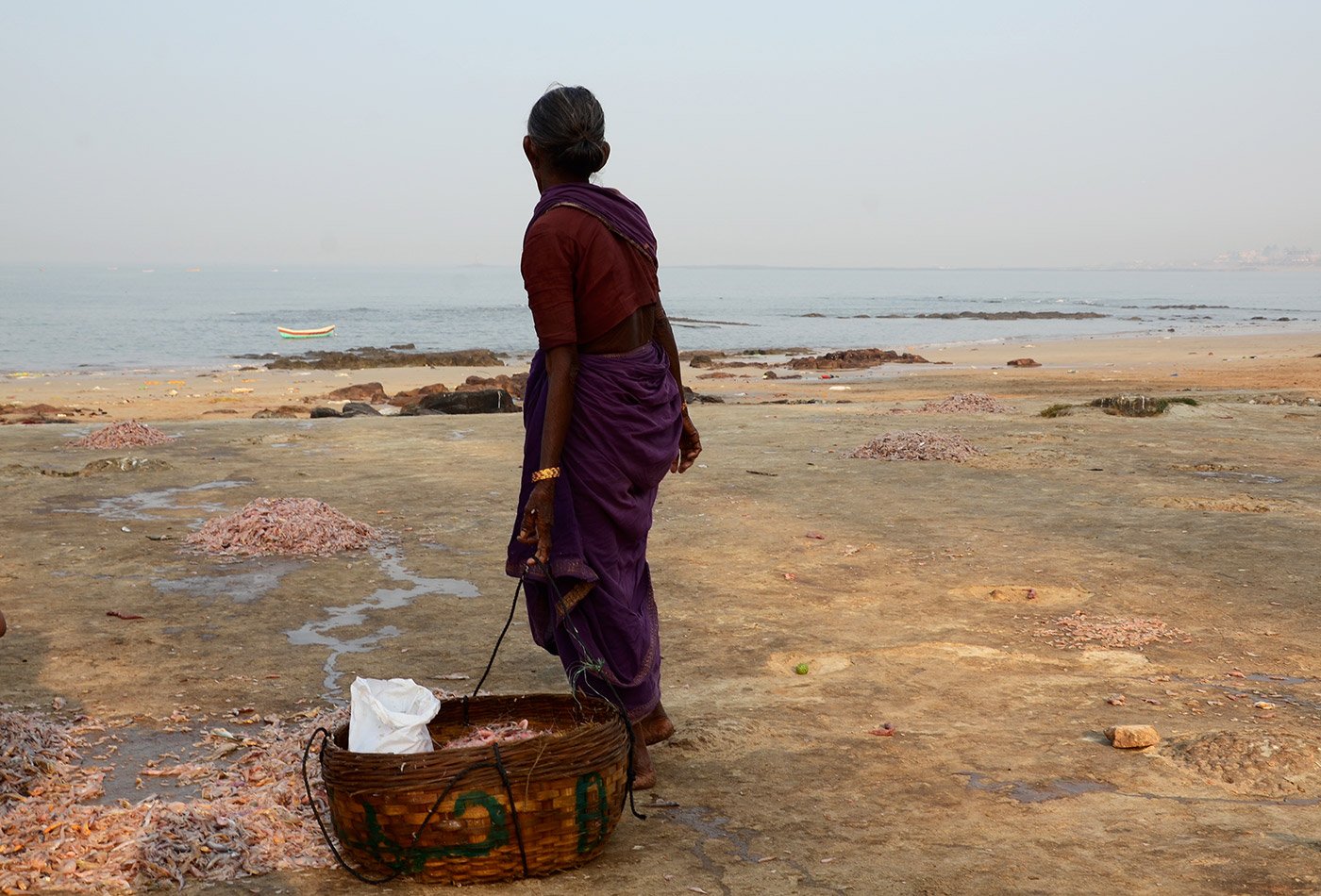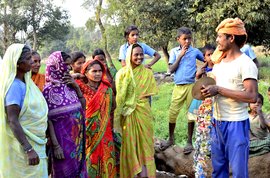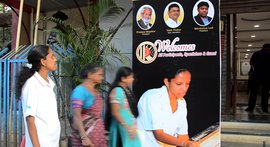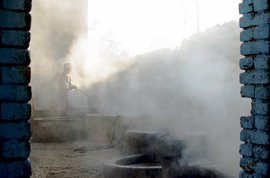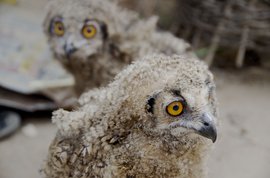Dongarpada is a
gaothan
(hamlet) at Madh island in north Mumbai. Around 40-45 families of the Koli fishing community live here. They collectively operate a
khala
(a level fish-drying ground). There are several such grounds at Madh.
Almost every Koli family employs 5-10 workers, many of them migrants from Uttar Pradesh, Andhra Pradesh, Maharashtra and other states. The migrants come to Mumbai every year from September to June. They work on contract for the Kolis and earn around Rs. 65-75,000 for the eight months.
The male migrants usually stay in shared rooms – 4-5 men to a room – provided by the Koli families. Many of the women here are from Andhra Pradesh; they come with their entire families, including children. They are given separate spaces on the employer’s land on a monthly rent of around Rs. 700.
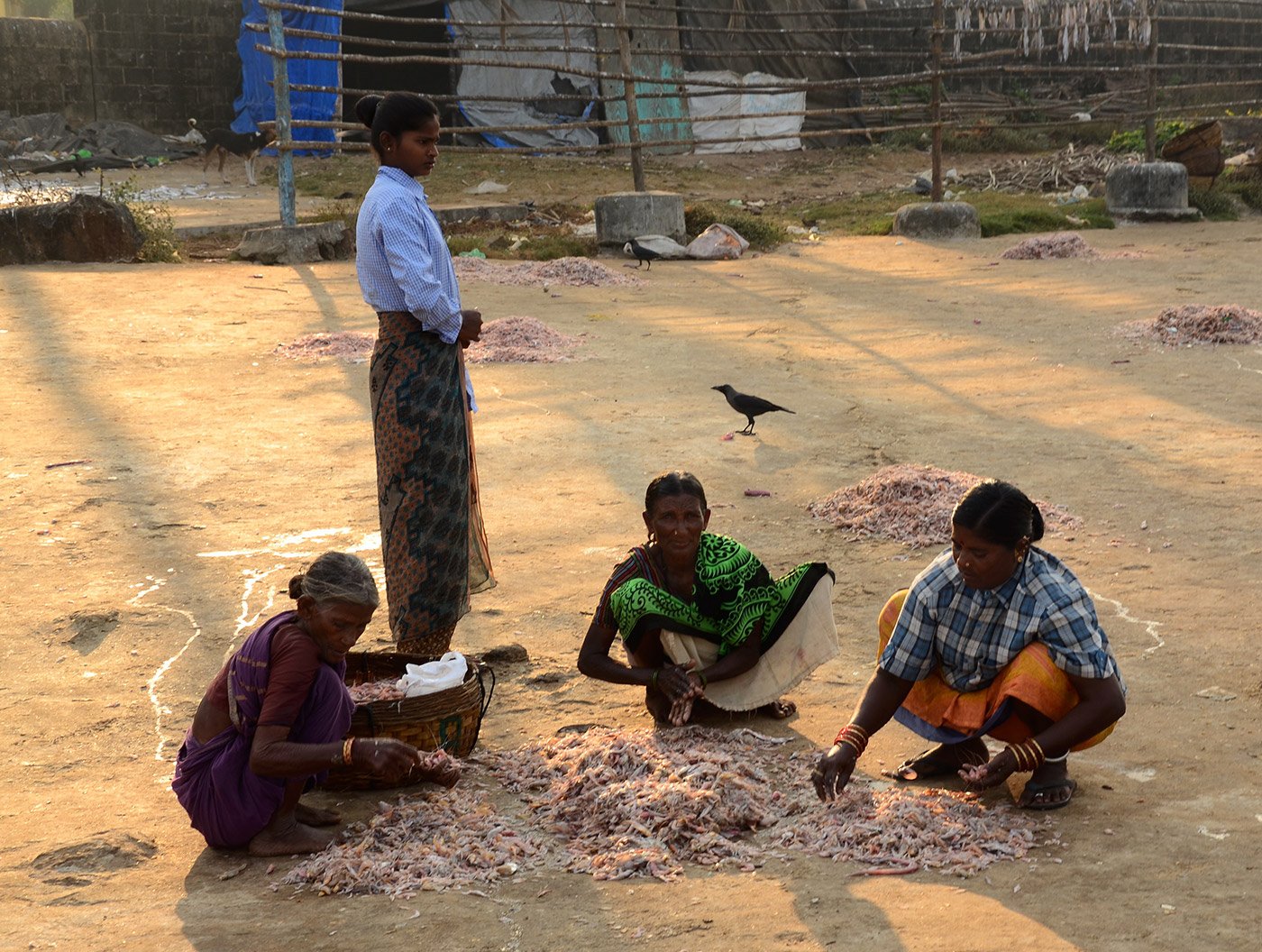
Rangamma (on the right; she prefers using only her first name) is from Mantriki village in Kurnool district of Andhra Pradesh. She speaks Marathi and Hindi fluently, besides Telugu. She has been coming to Madh for 20 years with her husband and other family members. Only her son, a teacher, stays back in the village. ‘There is no rain’, she says in Hindi, ‘so farming is not possible. So we come here for work’
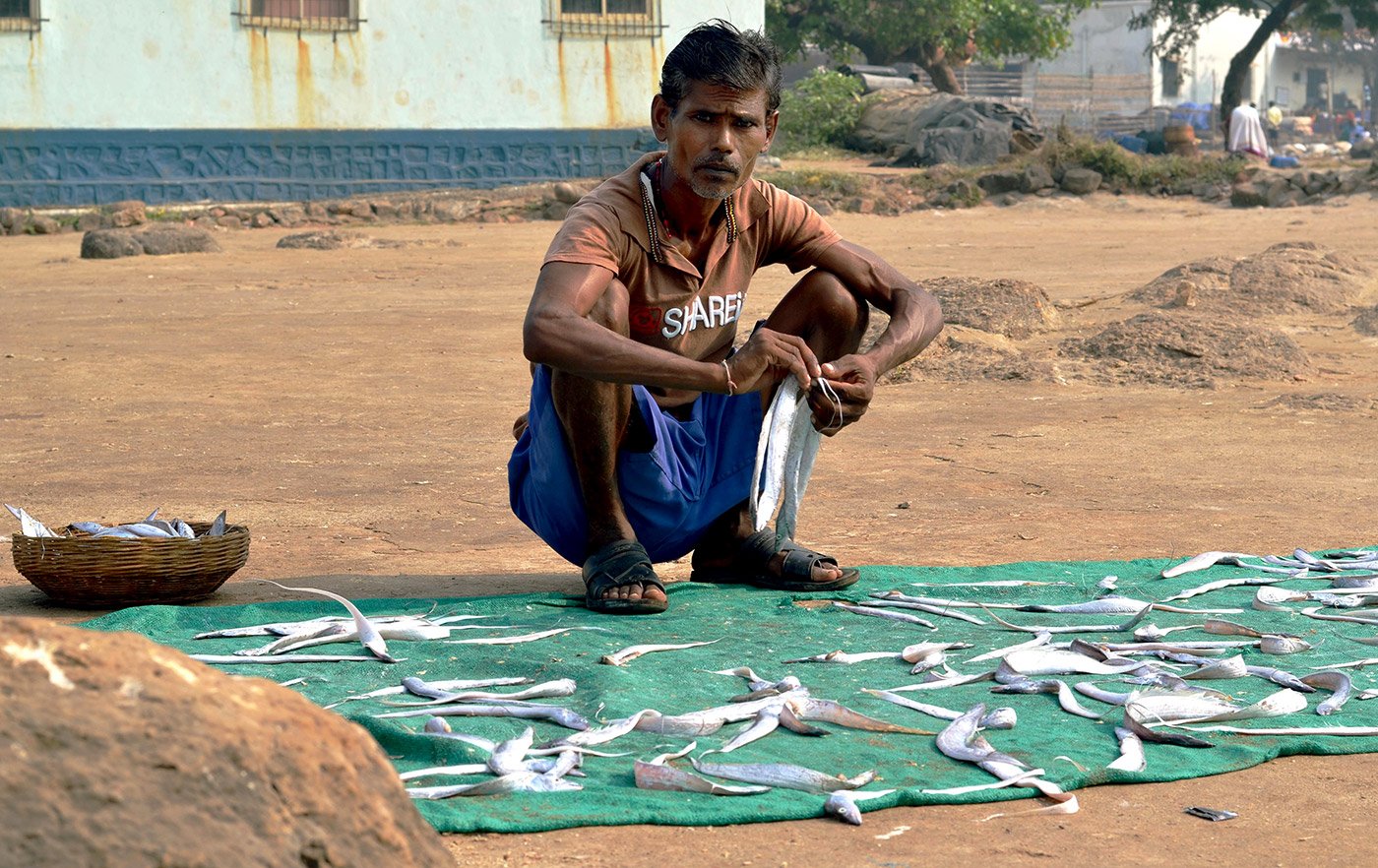
Suresh Rajak is from Dharampur village in Jaunpur district in Uttar Pradesh. He worked in a paint factory in Dombivali in Thane district for seven years, and moved to Madh a few months ago. ‘People from my village have been coming here for years’, he says. ‘The work and the money are better here’
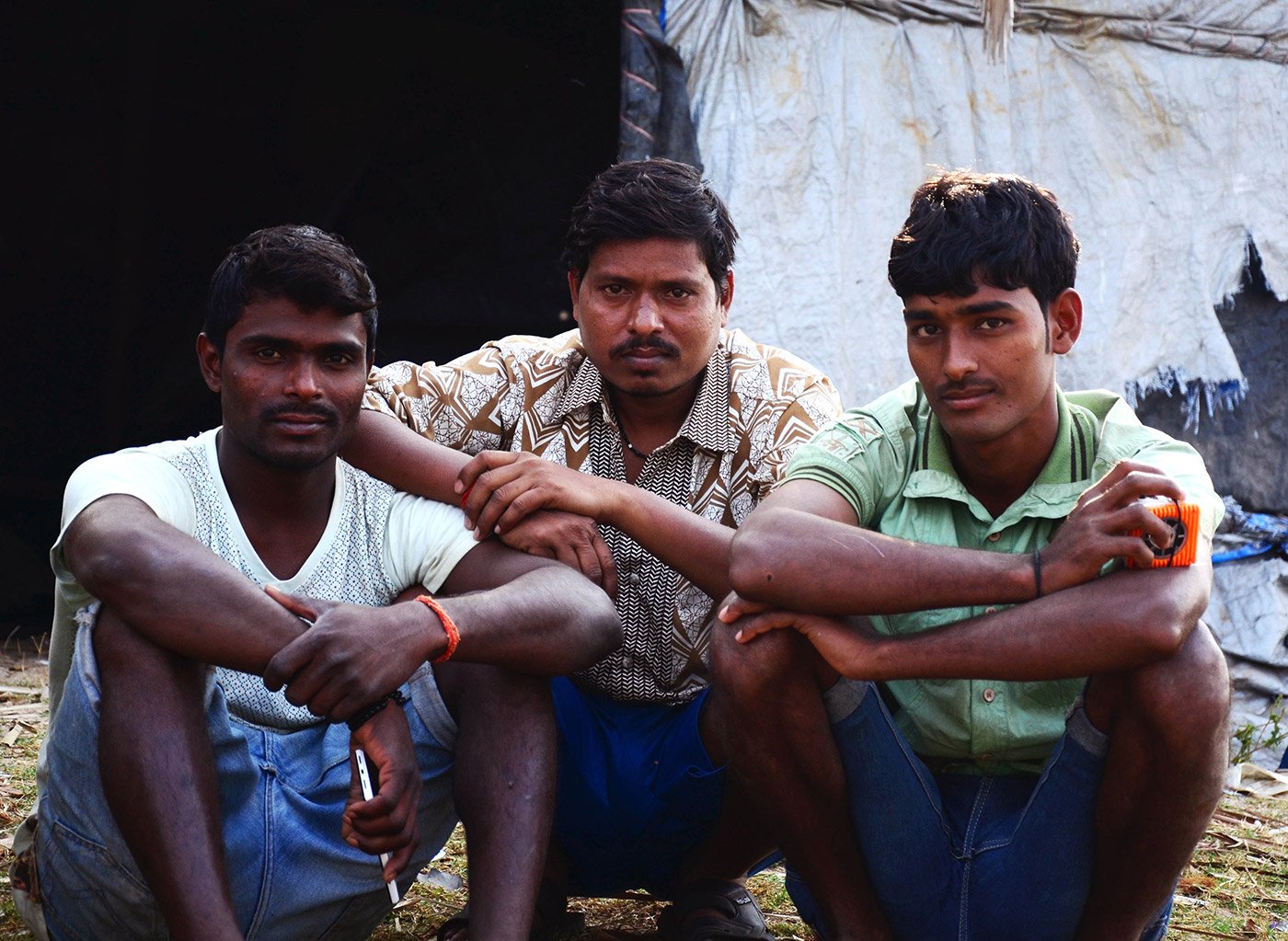
Gyanchand Maurya (left) is also from Dharampur. He worked in a timber workshop at Saat Rasta in central Mumbai before he came to Dongarpada in 2016. Others from the same village are at Madh too – Subedar Gautam (middle) has been coming for five years; Dheeraj Vishwakarma (right) is 20 and still studying and periodically returns to Jaunpur for his exams
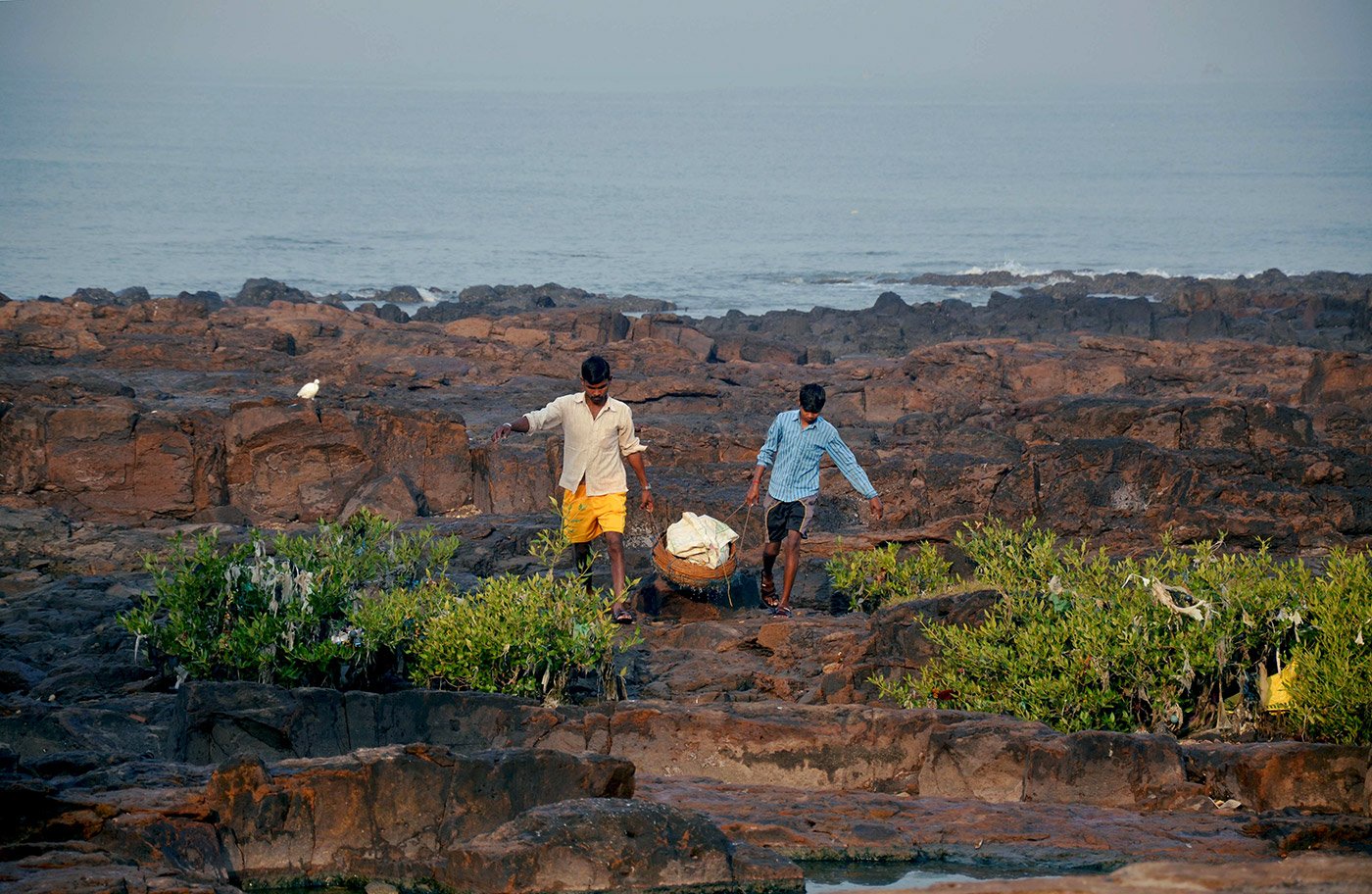
‘The nakva [employers] go out in the bigger boats and catch fish all night’, Suresh says. ‘At 3-4:00 a.m., we hear on the wireless walky that the boat has arrived. Then we go in the smaller boats and bring the catch to the ground... None of us from our village likes going on the fishing vessel. The [deep] sea makes us sick. It’s best left to the nakva’
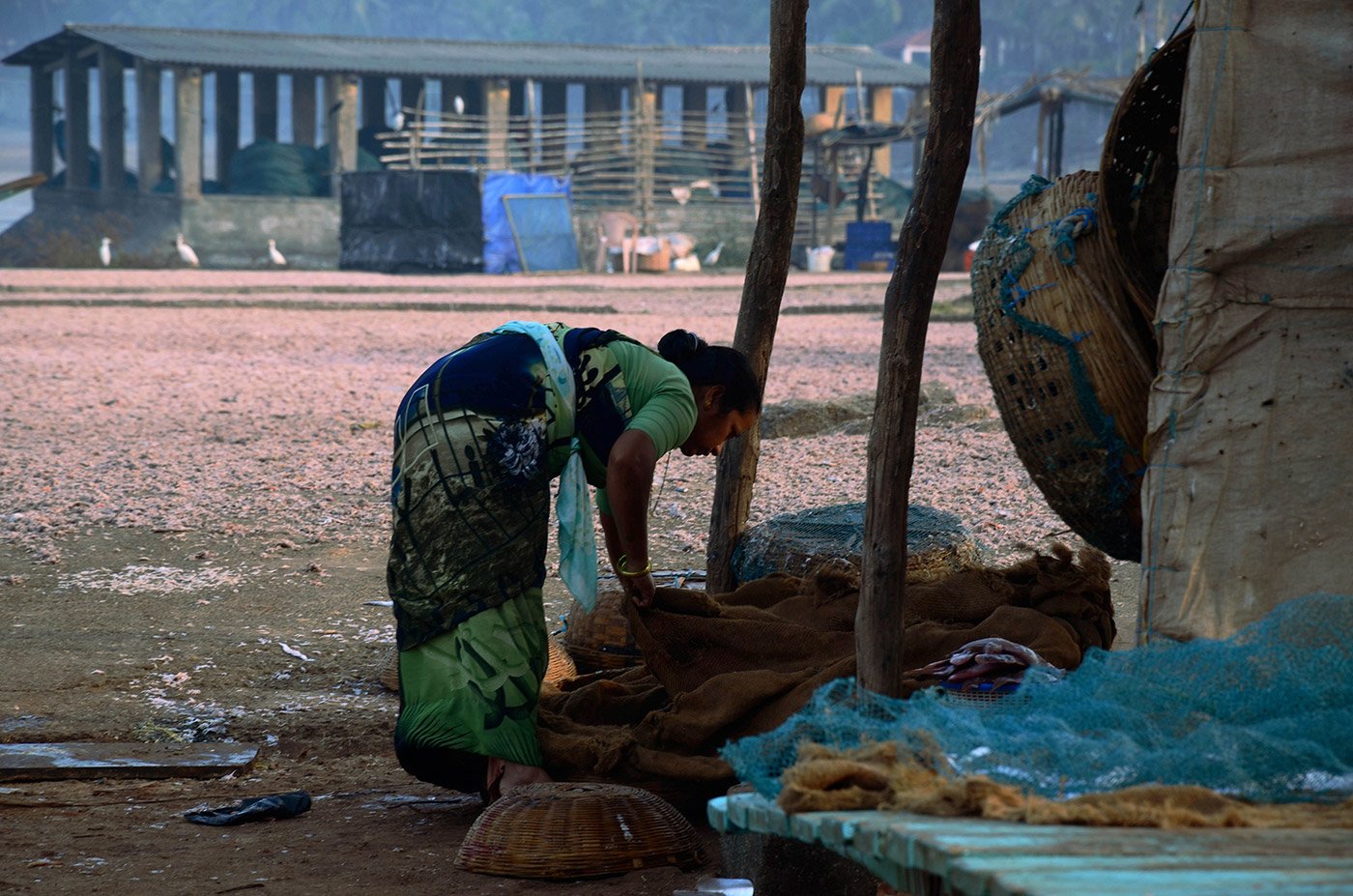
Rangamma’s sorting work begins once the catch arrives. She shows me a basket and says, ‘See, this pile has everything from big to small fishes, prawns and even garbage. We are separating them’. By late afternoon, the jawala (baby shrimp) spread out for drying have turned the ground pink
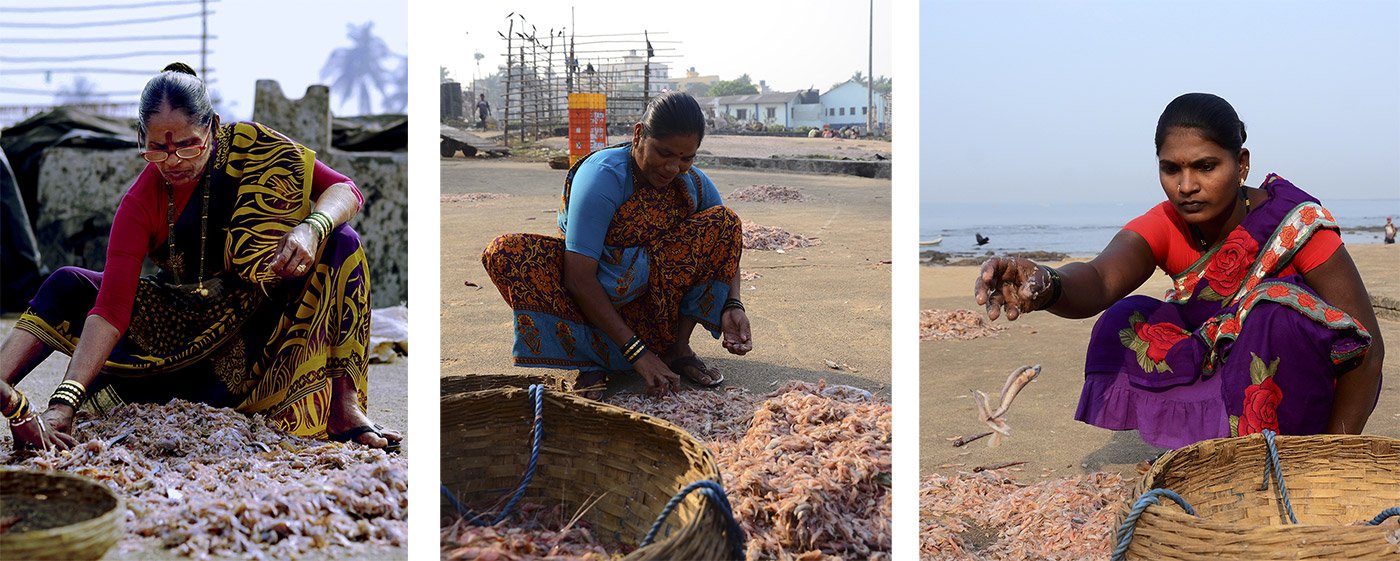
Lata Koli (left) and Reshma Koli (centre) are among the employers at the khala. The Kolis call their workers ‘ naukar ’ [servant) – one of them is Mariappa Bharathi (right), from Mantriki village. ‘Our family has employed 10 migrant workers. We [Kolis] and they do the same work’, Reshma says. The labour of the migrants, she says, is necessary due to a shortage of hands among the Kolis, and because their children have moved into other occupations
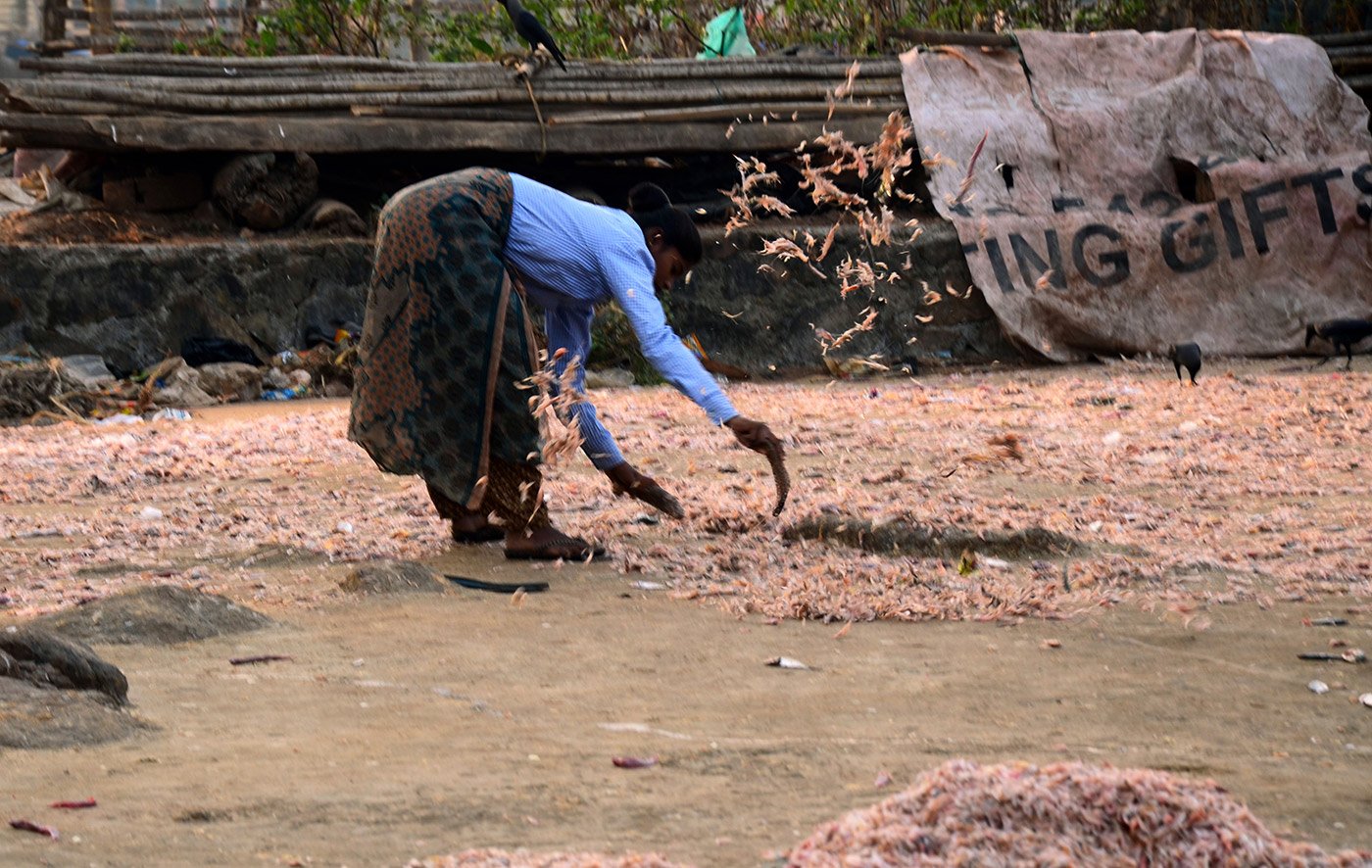
Once the women – as well as some men – have separated the various fish and prawns, they are packed with ice and taken to the fish market in Malad in north Mumbai. Some of the fish is spread out in the sun. After half a day, it is turned over so that all sides become dry

Daner Gandal, also from Mantriki village, washes all the fish that will be either sold fresh or first dried
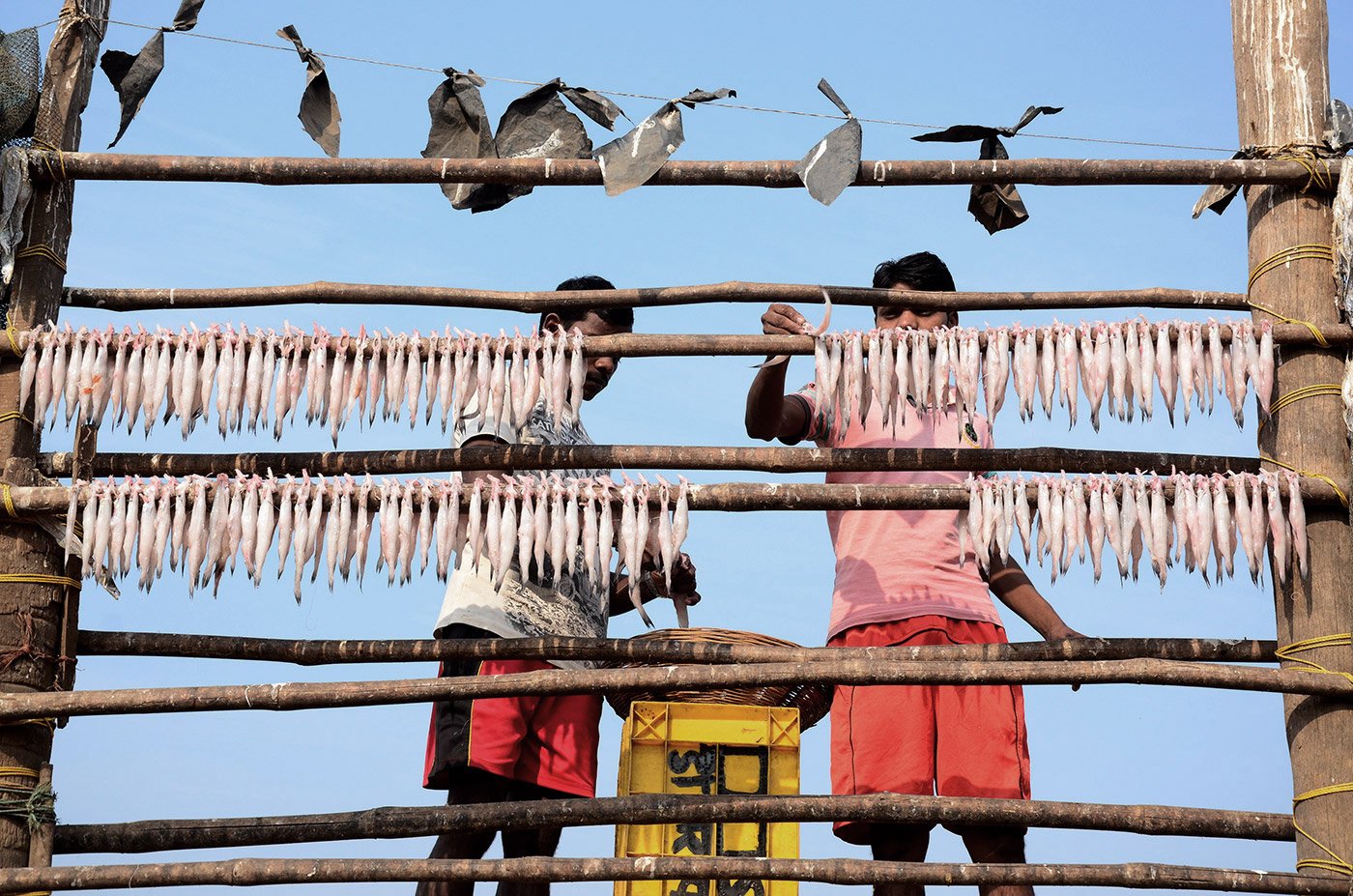
Some workers dry the bombil , popularly known as Bombay duck, by interlocking the jaws of two fish and hanging them over a waland (bamboo frame). They are placed facing east and west, so that each side gets equal sunlight

Black plastic bags are tied to the waland to scare away crows by making them believe the bags are crows too. This only works sometimes
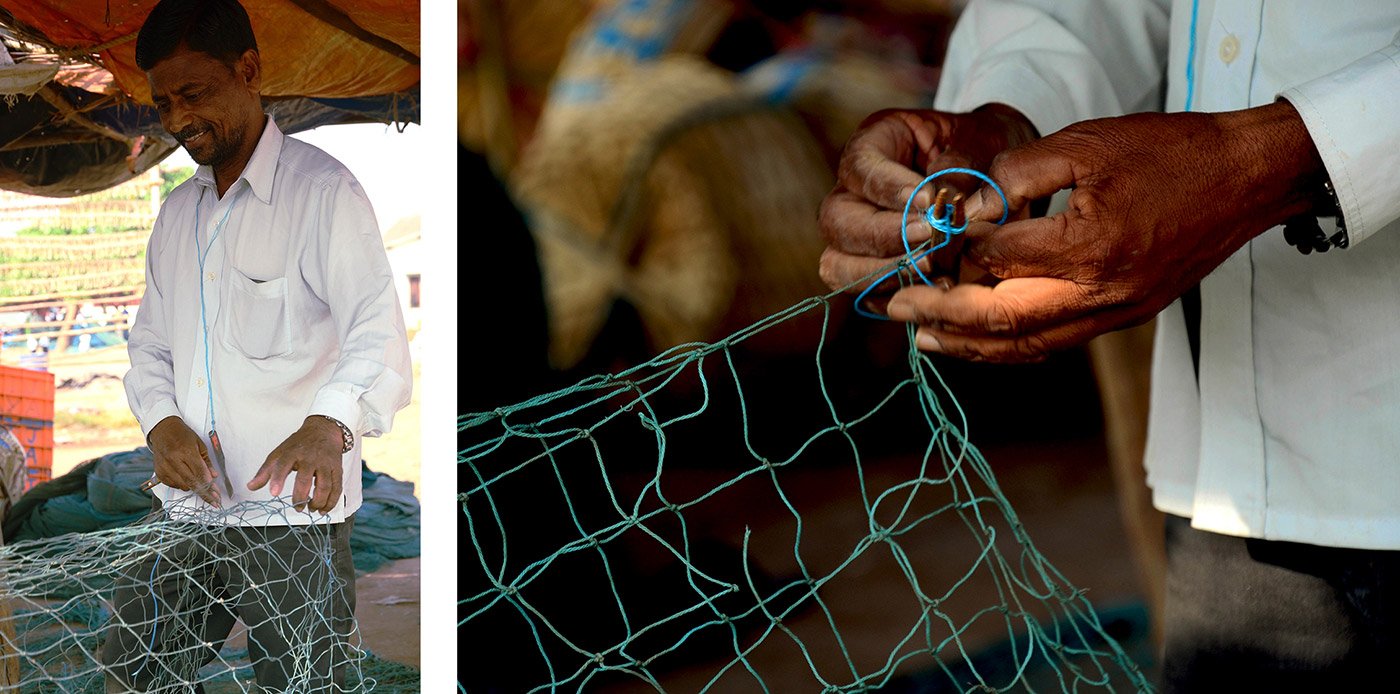
When the day’s sorting and drying are done, other work remains, like mending the fishing nets. Dominic Koli, 51, one of the most senior and respected Kolis at the khala , employs six workers, all of them migrants, and does everything himself too along with his workers – sailing, fishing, drying the catch and mending nets. He and other Koli families at Dongarpada have hired Abdul Rajjak Solkar (above) , a fishing net weaver, for the day to repair their damaged nets. Solkar is from Rajapur taluka in Maharashtra’s Ratnagiri district. ‘My father used to weave nets, and now I too am doing it’, he says. ‘I am a daily wage worker. Today I am here, tomorrow I will be somewhere else’
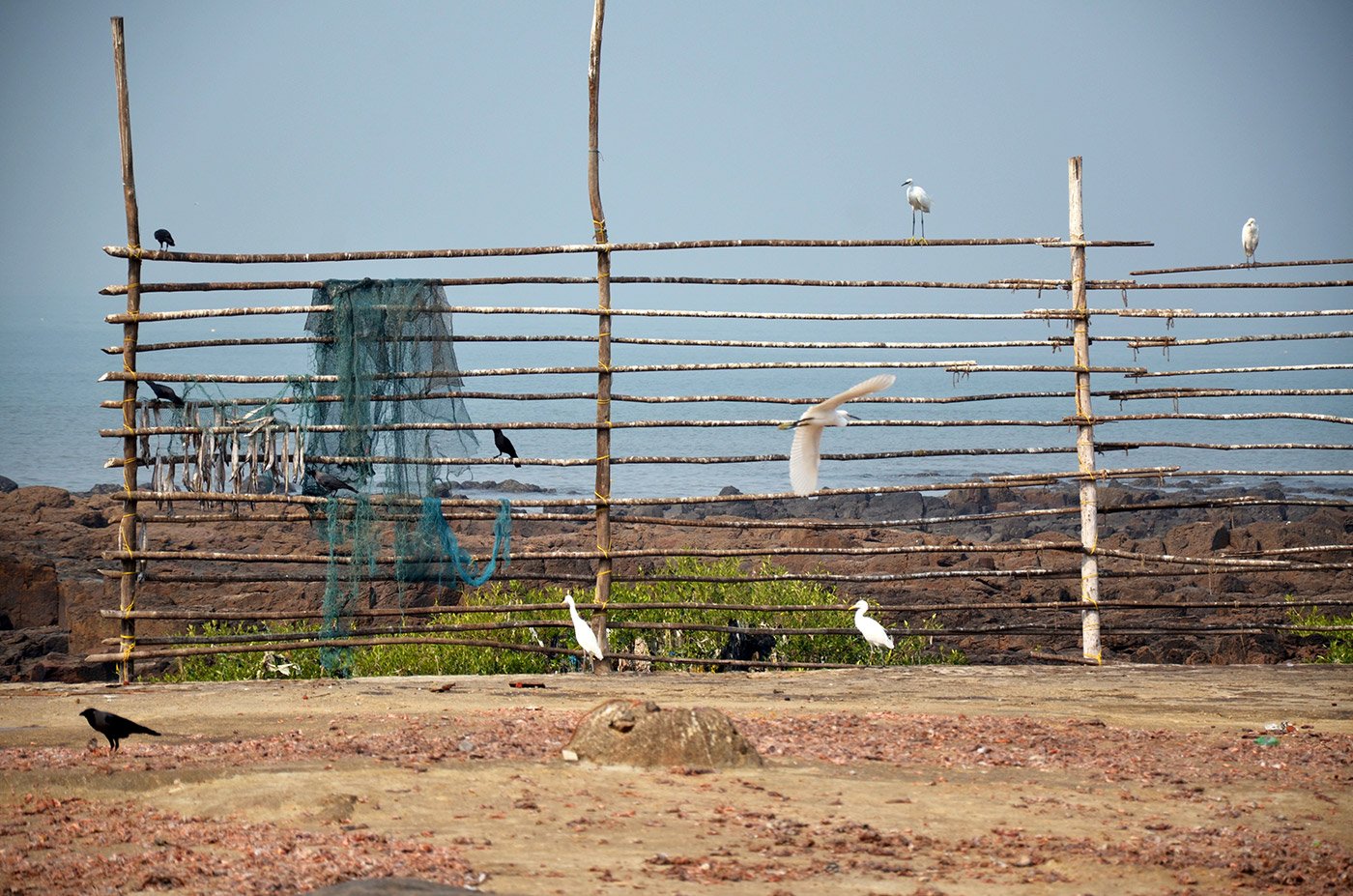
While all this work at the drying ground continues, others are busy with their own tasks – hungry crows, dogs and cranes lurk around the khala all day, drawn by the strong smell of fish and the hope of a quickly-snatched morsel
